Search Results
Showing results 1 to 20 of 78

Hot Stuff!: Investigation #4
Learners test two jars containing soil, one covered and one open, for changes in temperature. After placing the jars in the Sun, learners discover that the covered jar cools down more slowly.
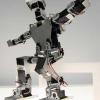
A-Mazing Robot
Source Institutions
This activity lets you program your 'robot' (a willing friend) to pick up and dispose of some 'toxic waste' using as few commands as possible.

Hot Stuff!: Investigation #1
Learners test two jars, one containing plain air and one containing carbon dioxide gas, to see their reactions to temperature changes.

Boomerang
Source Institutions
Learners trace, cut out and fly a boomerang, outdoors or in a large indoor space.
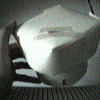
CD Spectroscope
Source Institutions
In this activity, learners use an old CD to construct a spectroscope, a device that separates light into its component colors.
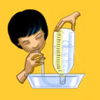
Lung Capacity
Source Institutions
This is an activity about lung capacity. Learners will measure their own lung capacity using a homemade spirometer.
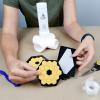
Exploring the Universe: Pack a Space Telescope
Source Institutions
Space telescopes can offer us better, clearer views of the universe (and of our own planet) than Earth-based telescopes can, but getting these large, delicate pieces of equipment into orbit is tricky.
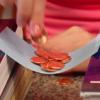
Strengthen a Paper Bridge
Source Institutions
In this quick activity (page 1 of the PDF under SciGirls Activity: Tug O' War), learners will test how many pennies a flat paper index card bridging the gap between two stacks of books is able to supp
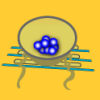
Build a Raft
Source Institutions
In this activity, learners explore density and buoyancy as they design and construct rafts.
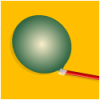
Rocket Pinwheel
Source Institutions
This is an activity about motion, power, air and Newton’s Third Law of Motion, which states that for every action there is an equal and opposite reaction.
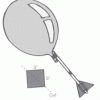
Rippin' Rockets
Source Institutions
In this activity, learners work in pairs to conduct a series of experiments using a balloon, drinking straw, and paper.

A Merry-Go-Round for Dirty Air
Learners build a model of a pollution control device--a cyclone. A cyclone works by whirling the polluted air in a circle and accumulating particles on the edges of the container.
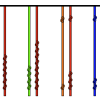
Quipus
Source Institutions
Learners create an Incan counting device called a quipu (pronounced kee-poo).
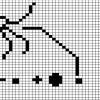
Translating an Alien Message
Source Institutions
In this activity, learners work together to interpret an "alien message." The group pretends that this is the only message from an imaginary civilization, so there is no "key" and thus no "correct" wa
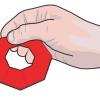
Origami Flying Disk
Source Institutions
In this three-part activity, learners use paper to explore Bernoulli's Principle — fast-moving air has lower pressure than non-moving air.
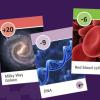
Exploring Size: Powers of Ten
Source Institutions
In this activity, learners play a card game that explores the relative sizes of various objects. Learners compete to organize their hand of cards into lists of objects from largest to smallest.
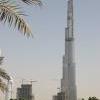
You're Grounded
Source Institutions
In this engineering activity, learners test the stability of towers they build out of cups, discovering that structures with more mass in the base are more stable.

Postcards from Space
Source Institutions
Using information from the My Place in Space lithograph, learners write and/or draw a postcard to friends and family as if they had gone beyond the interstellar boundary of our Solar System, into the
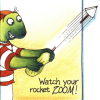
Zoomers
Source Institutions
In this activity, learners build their own rockets from paper, coffee stirrers, and tape. Learners discover that when anything flies, air pressure is always involved.

Nature Journals
Source Institutions
In this activity, learners construct a home-made journal with simple, everyday materials.
